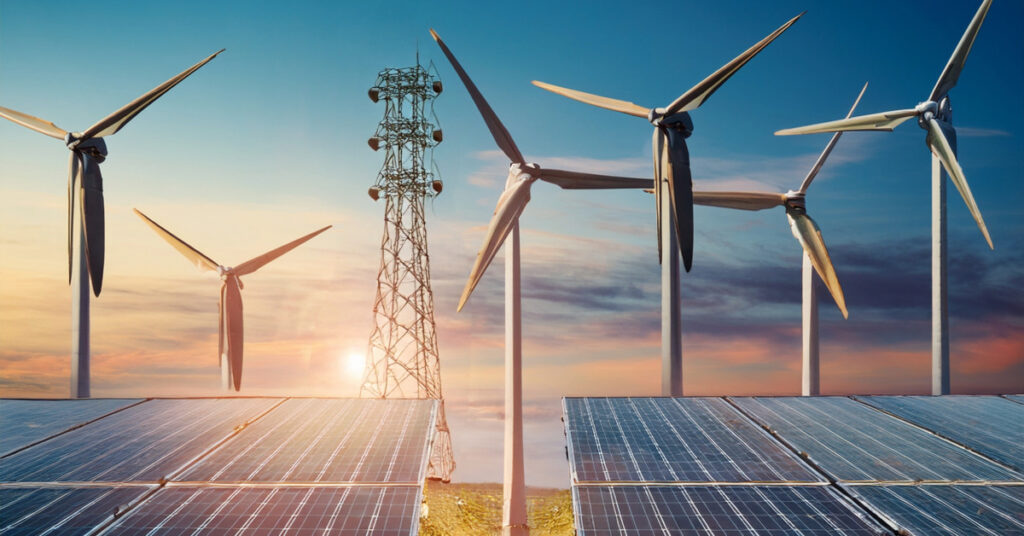
Utility Investor’s Hint:
What’s Needed to Create Investment Opportunities
Branko Terzic
Berkshire Hathaway Inc held its annual meeting May 3, 2025. The multinational conglomerate, one of the last remaining conglomerates, is worth almost a $1 trillion and has a cash pile of $347 billion for future investment. At this year’s meeting, founder and CEO Warren Buffet announced his retirement and that his successor would be his former deputy, Greg Abel. One subsidiary is Berkshire Hathaway Energy (BHE) with assets of $140 billion and revenues of $26 billion. The assets are in the US, the UK, Canada and Australia.
In the US, BHE owns the electric utilities PacificCorp, MidAmerican Energy, NV Energy and gas utility Northern Natural Gas. It also owns gas pipelines and an electric transmission company.
Both Buffet and Abel spoke about future energy investment and their comments bear some attention and analysis. The follow quotes are from https://medium.com/@aeroyoung/transcript-berkshires-2025-annual-shareholder-meeting-efd5fff0872a
Warren Buffet:
“There are certain really major investment situations where we have capital like nobody else has in the private system.
“We have particular knowhow in the whole generation and transmission arena. The country is going to need it. But we have to figure out a way that makes sense from the standpoint of the government, from the standpoint of the public, and from the standpoint of Berkshire, and we haven’t figured that out yet.
“The way to handle it is to have some kind of government-private industry cooperation similar to what you do in a war. When they were doing the highway system, I don’t think the government set up its own guys that were going to pour cement, but you needed cooperation.
“We’re at that point in terms of energy, but I don’t think we’ve made any progress particularly.”
Greg Abel:
“It should be something that we’re capable of in the country, but the country was not designed for having 48 different jurisdictions that could mess up anything that you were attempting to do.
“During wartime, it’s one thing to get agreement, but during peace time, it’s a different problem. That’s going to be one for the next generation.”
My Perspective
The country does need investment in energy infrastructure and BHE has money to invest and would like to invest, but not under the current conditions. Buffet says that BHE has “…knowhow in the whole generation and transmission arena” and calls for “government-private industry cooperation” much like the arrangement which led to the construction of the interstate highway system. Abel asserts that there are “…48 different jurisdictions that could mess up anything that you were attempting to do.” He also adds that “During wartime, it’s one thing to get agreement…”
With the aforementioned interstate highway system, the Federal-Aid Highway Act of 1956 established and funded the “National System of Interstate and Defense Highways.” It was created to enhance national defense, improve economic activity and address safety concerns on existing roads.
Reading between the lines of the comments of Buffet and Abel, always a dangerous excursion, one would expect that a BHE-acceptable regulatory landscape for investment could include:
- Impose federal licensing for interstate electricity transmission construction
- Impose federal licensing of new electricity generation above a certain size threshold
And perhaps BHE would seek this as well because of the effect on ROI:
- Government financial support for investments which may not be sustainable without continued justification based on climate change externalities.
The Status Quo
Today the Federal Energy Regulatory Commission (FERC), the agency which regulates electricity wholesale sales and transmission rates, does not have the authority to regulate transmission line construction. The States and State Public Service Commissions retain this authority and the right to grant eminent domain for transmission line construction. The FERC in setting rates for third party owned transmission service can provide financial incentives for companies to propose and build transmission lines, even if those third party owned lines still require final state approval.
Congress made one attempt to give FERC authority over approval of “interstate” transmission lines if those lines were located in designated National Interest Electric Transmission Corridors (NETC). The designation of these NIETC-designated corridors would come from the Department of Energy (DOE) based on certain conditions. This legal structure was established in the National Energy Act of 2005 (NEA) under Section 216 of the Federal Power Act. Although a total of four National Transmission Needs Studies have been released by the Department of Energy since then, court cases successfully challenged the 2006 and 2009 releases. And while the very recent 2024 DOE National Transmission Planning Study takes a different approach focusing on future needs and shows a more stakeholder-aware leaning, it may well draw continued ire from stakeholders at the local and state levels.
Note that the language of the 2005 NEA was such that the FERC can only exercise its authority in the case where a State fails to decide on a siting application (to approve or to disapprove the application) within a certain time frame. The likelihood of a State failing to act on an application is and has been nil.
Of course, Congress has had the opportunities to amend the 2005 Act but has had no interest in full preemption of the state authority to site and approve transmission line construction.
As a consequence, investors and BHE should expect to deal with the state-by-state system for building a new interstate electric transmission system until the 2005 law is changed.
The Honorable Branko Terzic is a former Commissioner on the U.S. Federal Energy Regulatory Commission and State of Wisconsin Public Service Commission, in addition to energy industry experience was a US Army Reserve Foreign Area Officer ( FAO) for Eastern Europe (1979-1990). He hold a BS Engineering and honorary Doctor of Sciences in Engineering (h.c.) both from the University of Wisconsin- Milwaukee.
#BrankoTerzic #ai #energy #regulations #experience #research #future #opportunity #strategy #management #people #electricity #power #utilities #renewables #RenewableEnergy #energysector #powergeneration #energyindustry #powergrid #power #electrical #electricalgrid #solarenergy #engineering #powerlines #powerdistribution #substation #powerplant #powersystems #electricalengineering #cleanenergy #powersector #gogreen #climatechange

